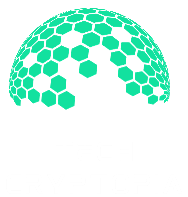Individuals, industry groups, and local governments submitted over 10,000 comments to the White House about its work-in-progress national AI policy, also known as the AI Action Plan. The White House Office of Science and Technology Policy (OSTP) on Thursday published the text of the submissions in a PDF spanning 18,480 pages.
The comments, which touch on topics ranging from copyright to the environmental harms of AI data centers, come as President Donald Trump and allies rejigger the U.S. government’s AI priorities.
In January, President Trump repealed former President Joe Biden’s AI Executive Order, which had instructed the National Institute of Standards and Technology to author guidance that helps companies identify — and correct for — flaws in models, including biases. Critics allied with Trump argued that the order’s reporting requirements were onerous and effectively forced companies to disclose their trade secrets.
Shortly after revoking the AI Executive Order, Trump signed an order directing federal agencies to promote the development of AI “free from ideological bias” that promotes “human flourishing, economic competitiveness, and national security.” Importantly, Trump’s order made no mention of combating AI discrimination, which was a key tenet of Biden’s initiative.
Comments submitted to the White House make clear what’s at stake in the AI race.
A number of commenters asserted that AI is exploitative, in a word, trained on the works of creatives who aren’t compensated for their involuntary contributions, and petitioned the Trump administration to strengthen copyright regulation. On the opposing side, commenters such as VC firm Andreessen Horowitz accused rightsholders of putting up roadblocks to AI development.
Several AI companies, including Google and OpenAI, have also pushed for friendlier rules around AI training in earlier comments on the AI Action Plan.
Petitions from organizations including Americans for Prosperity, The Future of Life Institute, and the American Academy of Nursing emphasized the importance of investments in research at a time when the federal government is slashing scientific grants. AI experts have criticized the Trump administration’s recent cuts to scientific grant-making, and in particular, reductions championed by billionaire Elon Musk’s Department of Government Efficiency.
Some commenters on the AI Action Plan took aim at the Trump administration’s far-ranging tariffs on foreign goods, suggesting that they may harm domestic AI efforts. The Data Center Coalition, a trade association representing the data center sector, says tariffs on infrastructure components “will limit and slow” U.S. AI investments. Elsewhere, the Information Technology Industry Council, an advocacy group whose members include Amazon, Intel, and Microsoft, urged “smart” tariffs that “protect domestic industries without escalating trade wars that harm consumers.”
Only a handful of comments mentioned “AI censorship,” a topic top of mind for many of Trump’s close confidants. Elon Musk and crypto and AI “czar” David Sacks have alleged that popular chatbots censor conservative viewpoints, with Sacks singling out ChatGPT in particular as untruthful about politically sensitive subjects.
In truth, bias in AI is an intractable technical problem. Musk’s AI company, xAI, has itself struggled to create a chatbot that doesn’t endorse some political views over others.
President Trump has ramped up efforts to assemble an AI policy team in recent months.
In March, the Senate confirmed Trump’s pick for director of the OSTP, Michael Kratsios, who focused on AI policy in the OSTP during Trump’s first term. Toward the end of last year, Trump named former VC Sriram Krishnan as the White House’s senior policy advisor for AI.
